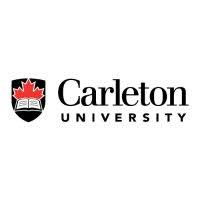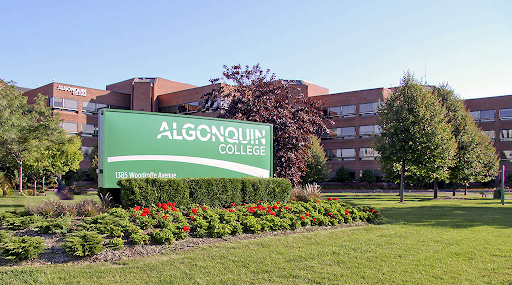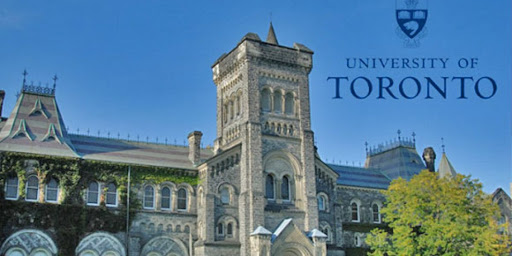After Graduation: What Comes Next?
- Ria Baijal
- Mar 26, 2021
- 10 min read
Graduating high school is an exciting time, but one that involves making decisions about the future. This year, due to the Covid-19 pandemic it has become infinitely more stressful, since tours, panels and open houses have been cancelled or done online. Here are some words of advice from former Earl of March students about their post secondary experiences, that I hope help you, the reader, make your decision.
Amina El Sharif is a first year student in global and international studies with a minor in media and communications at Carleton University(EOM Class of 2020).
Q: Why did you choose to study global relations and communications?
A: I chose [this program] because I love the idea of learning about the world but also because I have a keen interest in politics. As for my minor, I enjoy learning about media/communications and it does play a great role in understanding my media, so it is a great addition.
Q: What was the most difficult part of transitioning from high school to university?
A: The most difficult part was understanding how to balance my time. The work looks a little different from high school and I found that in my program, there was a lot of reading to do, which wasn't like high school. I had to organize my time and shift the way I study to better fit what I needed to do, to successfully complete requirements for my program.
Q: How important is involvement in clubs and organizations?
A: In high school, I think they’re important, but not because it adds to your resume or makes you look like a better candidate. A majority of schools, depending on the program, don't really ask for supplementary work and essays about these things. It is important because it teaches you time management skills and provides you with a network that can help you be successful in the future. In university, I would think the same thing. Getting involved helps you build connections with other students and allows you to work on scheduling your personal time properly. My tip: get involved, but for the right reasons. Make sure you are happy and enjoying the things you are involved in because you get more valuable lessons out of them!
Malick Sylla is a first year student in computer science with a specialization in software engineering at Carleton University(EOM class of 2020).
Q: Why did you choose to study computer science?
A: Going into my senior year, I knew I wanted to study computer science because I really enjoy programming and the creative/logical process of software development. I also knew that a bachelors in tech would allow me to work in a bunch of different fields, as well as keeping the door open to a career-switch into law. That being said, choosing a specific program was ridiculously hard - I struggled between software engineering and computer science. Computer science offered me a host of electives I could use to explore my other interests, while software engineering felt more prestigious and applied. Ultimately, I decided that the electives I got in computer science meant more to me than the ring I would get at the end of an engineering degree. I did choose to specialize in software-engineering though, so I will hopefully still be able to balance theory with some more applied classes in lifecycles and software management.
Q: What was the most difficult part of transitioning from high school to university?
A: You’re expected to be very autonomous in university. There’s no hand-holding - you have to stay on top of your classes and hold yourself accountable. Sometimes assignments and labs pile up, and it becomes easy to forget to complete a task or to get your deadlines mixed up. At first, this can be challenging if you’re used to relying on others for reminders, but if you plan in detail and try your best to stay organized you’ll do just fine. I found that externalizing my tasks to a planner really helped me keep track of what I had to do at any given time. It’s nothing fancy, literally just a white board that hangs in my room, but it’s been the key to surviving my first year.
Q: What has been your favourite and least favourite part about university?
A: My favourite part about university is definitely the fact that my courses are tailored to my interests. The credits in my major have been challenging but fulfilling, and my electives have been super interesting. Studying and putting in work is much easier when it’s for something you enjoy, so I’m glad that I haven’t taken a course I didn’t enjoy yet, and I’m hoping to keep that hot streak going. My least favourite part about university so far is the textbook hunt I do before each semester. You can easily drop hundreds of dollars on textbooks you don’t even need. If I’ve learned one thing, it's that it pays to do a reddit deep-dive before you purchase textbooks. Alternatively, it's not a bad idea to ask older students for hand-me-downs.
Q: Do you have any tips for seniors?
A: Take your time in making your decision. Choosing your program and school is not irreversible, but it’s an important decision that should be made after a lot of thought and reflection. If you’re struggling with it like I was, you can try talking to your friends and family, writing down many pros and cons lists, consulting your older friends, and browsing different forums. Again, don’t underestimate the importance of non-academic factors in your decision making process. I know we can sometimes get blinded by the prestige of an institution or the title of a program, but I really believe that things like campus culture, social life, the attractions in and around campus, and the attitude of the administration are equally important. Finally, even though this has been a really anticlimactic end to your high school career, you all should try to enjoy what’s left. Make the most of it, and leave Earl with some good memories.
A second year student in Architectural Engineering at Algonquin College/Carleton University who requested to remain anonymous(EOM Class of 2018) took a gap year before beginning his post-secondary studies.
Q: Why did you choose to take a gap year and what did you do during that time?
A: I chose a gap year mostly for two reasons. I was burnt out and I was unsure about what I wanted to do. I spent most of that time working, I travelled a small amount, and I took a part time very broad program to see what I actually enjoyed working on.
Q: What do you think recently-graduated students should look to get out of a gap year?
A: If you choose to take a gap year you should use it to really figure out what you want [and] what will make you happy. But also use it as a time to be productive: save up, learn skills, gain experience.
Q: Did you know what university/college program you were planning to attend before taking the gap year or did you decide during that time?
A: I had options when I chose to take the gap year and ended up choosing one of those however if I had discovered that I didn’t enjoy the work in that field, which I [had] taken a few courses on or had I found something better I would have chosen that.
Rohun Baijal is a third year Commerce student with a specialization in Finance and a major in Economics at the University of Toronto(EOM Class of 2018).
Q: What would you recommend high school students look for when choosing a university/college and program?
A: I would recommend students look carefully at how their program is designed. At UofT(and other schools) you are not considered part of your major in 1st year and you will have to apply to your specialization at the end of 1st year. Many students do not know this when they accept offers in high school, and oftentimes they are not able to get into their program. I would also recommend looking online for alumni of the program you are interested in to see where they work as this will give you a very clear image of what industry people with this degree work in.
Q: Is joining clubs and organizations important in university life?
A: Getting involved in university is an amazing thing to do and not doing so will really limit your university experience. It can be a position in the student society for your major, a research lab, or a club that you are interested in. You will meet amazing people with shared interests and you will learn so much from everyone around you. Joining student societies in a leadership role is also a huge boost to your resume - it shows employers that you are a dynamic person. In my own experience, having leadership positions from student clubs is one of the main reasons I was able to land internships in my field of interest. Joining clubs in university is a must!
Q: When should university students start looking for internships, co-ops and jobs?
A: Start looking for internships for the summer right after your first year! If you are in a Co-op program then make sure to make the most of that opportunity and start your work terms as soon as possible. If you are not in a Co-op program, apply for internships after first year but do not be discouraged if you don’t get anything as companies tend not to hire first years. In your 2nd and 3rd year work as many internships as you can as it will help you grow as a person, it will be a huge boost for your resume and will help you land your ideal job after you graduate!
Q: Do you have any tips for seniors?
A: Don’t try to know your entire life’s plan! University will not go exactly as you planned, so be sure to enjoy the ride and use the time to figure what you enjoy and dislike. If you hate your major after your first year, switch! You do not have to pursue a field just because you committed to it out of high school. Don’t be afraid to change up your plans, and look forward to the future!
Gabriel Song is a third year student in Honours Science and Aviation at the University of Waterloo(EOM class of 2018).
Q: What is something you would recommend high school students look for when choosing a university or college to go to?
A: A similar program to Science and Aviation doesn’t exist anywhere else near Ottawa as far as I am aware, so it was a pretty easy decision to choose Waterloo once I was accepted. You should try to physically go to the campus, as you’ll be spending the next 3-5 years of your life there. Most universities have open houses, and they’re well worth attending. Tour the residence buildings, see what kind of food is available, and check out the buildings for places you’ll be able to sit down, take a break or review your notes between classes. The area around the campus is important too, as you won’t spend your entire life confined to the university. Having parks nearby is nice to go for a walk, and restaurants are nice if you are feeling spendy and want a change of food. Most people don’t get a car when they come to university, so try researching how far you’ll have to travel to get to the grocery store, the drugstore, or anywhere else you might have to go. If you do have a car, parking can be expensive. If you’re bringing a bike, check out how accessible the campus is to bicycle traffic. Where are the bike racks? Do the nearby roads have bike lanes? Remember that unless the bike lanes or paths are plowed in the winter, you probably will not be able to use your bike to get around once the snow starts flying.
Q: What has been your experience in moving away from home for school?
A: It was positive in the end. I think I was a bit tired of living with my family (sorry!), and ready to move out, even though I didn’t realize it until later. I lived on-campus in residence in first year. I had an apartment with a kitchen that I shared with one roommate, who was chosen by the university(if you know someone who is attending UW you can request them as a roommate). I pretty much only ate food that I cooked from day one, while my roommate was on a meal-plan and only cooked for himself occasionally. I now live on my own, which is more expensive than living with roommates ($1000/month vs. $400- $700/month), but I much prefer it to living with someone I don’t know. That said, I would highly recommend living in residence in first year. You make friends way more easily and there are more supports available through your don or RA than if you lived off-campus. Some of the off-campus first-years that I knew were frequently sad because they felt isolated from the larger community. Most people move out of residence after first year once they’ve found their squad (frequently people they met in residence).
Q: Would you say it’s important to join organizations or clubs in university?
A: I think it is important to find a community that you feel a part of. I am not super involved in clubs, but they are definitely a good way to get to know more people and to make yourself known. Certain activities and leadership positions also might look good on a resumé. I ultimately ended up getting a job at the flying school associated with my program, where I frequently see other people in the program, so I suppose you could say I am still involved in a way.
Q: Do you have any tips for seniors?
A: I’ll pass along the advice I got from the legendary Mr. Robert Gemmell, former physics teacher at Earl. If you have to ask, you’ll just have to go on the working assumption that the probable answer to your question is maybe. Mr. Gemmell told our class that there’s nothing wrong with having fun and doing silly things during frosh week, but after frosh week is over, it’s time to get down to business. If you can get into a routine during the first two weeks of first year, you should be more-or-less good to go for the rest of your time at university. If you cannot, you may end up in trouble. Many of your grade 12 teachers will provide advice regarding adapting to the university or college life, and most of it is pretty good. I suggest you give it some thought.
While this past year has been full of uncertainties, upcoming milestones should still be anticipated with pride and happiness. In itself, a high school graduation may not prepare students for the future, but it instead acts as a powerful symbol for the memories, hard work, friendships and community built over the last four years. Whether you are heading off into the workforce, taking a gap year, enrolling in college or university, I hope these interviews with past Earl of March students ease any anxiety about what comes next. Because as they said: the future is exciting and be sure to look forward to all it can hold!



















Comments